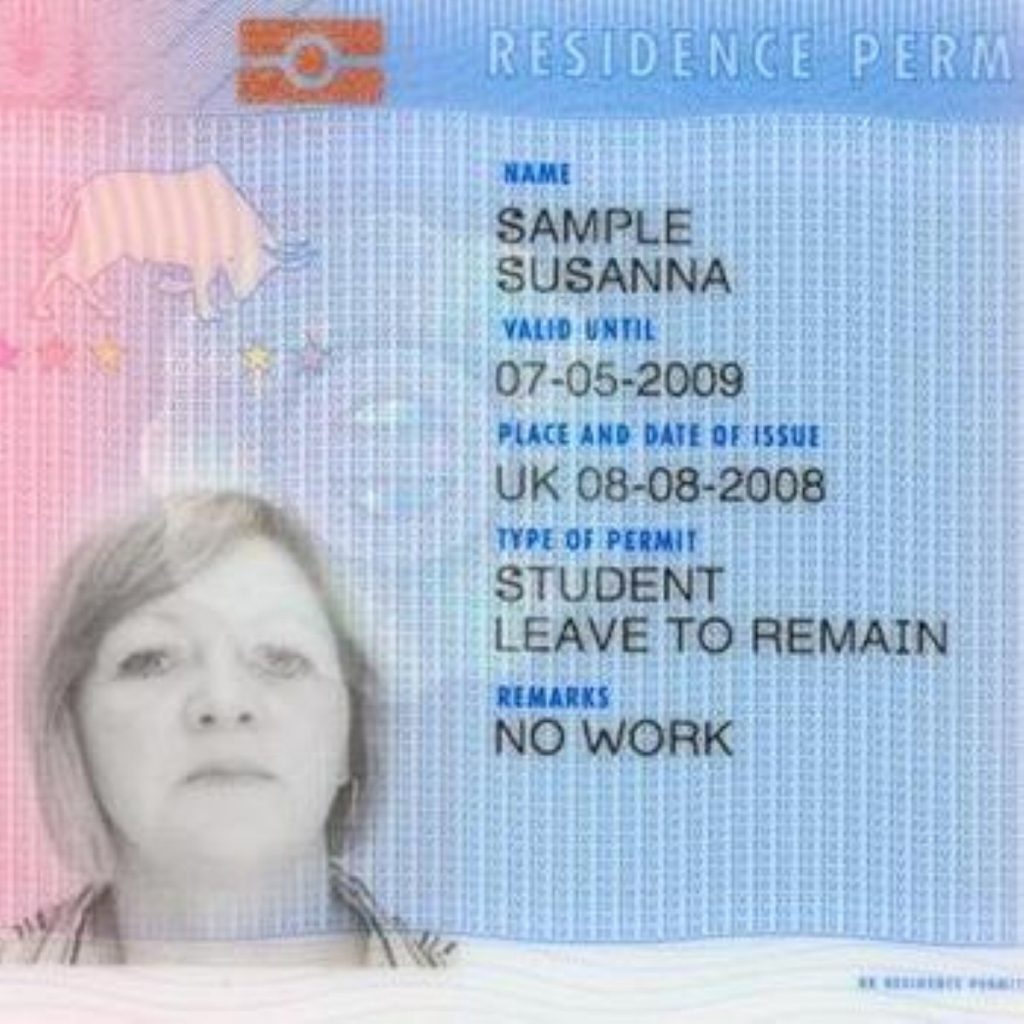Analysis: ID cards – What happens next?
The first British ID card has been unveiled. How long until you have to carry one?
There’s a potential future Britain in which today marks the date citizens all had to carry an ID card. About the size of a credit card, the document holds the owner’s photograph, nationality, date of birth, immigration status and biometric details such as fingerprints.
Should Labour stay in power – and that’s a big if – the process will work like this:
Foreign nationals in the UK will have to start applying for the cards from November 25th. The cards will be required for this group in about three years. The home office is targeting those groups most likely to enter the UK illegally, starting with foreign students and those seeking to marry a UK citizen. The government wants 90 per cent of foreign nationals to be covered by the scheme by 2014/15.


The first cards for UK citizens will be imposed next year for workers in sensitive roles and locations like airports. They become available – although not mandatory – to young people from 2010 and for the general population by 2011/12. By 2011, anyone over 16 applying for a new passport will have their details added to the national identity register.
But that’s all if Labour get in. Both opposition parties are implacably opposed to the plan, so in the eventuality of a Tory government, or even a hung parliament with Tories and Lib Dems sharing power, the scheme will almost certainly die. A hung parliament under a Labour – Lib Dem coalition could see the cards remain as part of the negotiations required to form it.
Of all government options for the general election in 2010, a Conservative government is obviously the most likely, but it’s not yet clear if the Tories would dismantle the entirety of the scheme or retain the foreign nationals section while halting its expansion to the general population. A party spokesman we contacted is still getting back to us with an explicit assurance that the parts of scheme already implemented will be rolled back.
The first option could leave the UK with a similar system to Japan, where foreign nationals and even the children of immigrants are forced to carry proof of ID, but citizens do not.
Removing the need for ID cards for foreign nationals will play badly in the tabloid press, should the Conservatives be in power, and many analysts are unsure of the Conservatives’ commitment to the cause. On the other hand, the statement from shadow home secretary Dominic Grieve today stressed the Tories do plan to scrap anything the government does over the next year and a half.
“Nearly two years ago, we put government and industry on notice that a Conservative government would abandon the scheme and that the government should design the contracts appropriately,” he said. “If they have not acted on this to protect the British taxpayer, it is reckless in the extreme at a time of heightened economic uncertainty.”
Reports in the media today that the Conservatives will retain ID cards for foreign nationals have been rejected by the party. A Conservative assured politics.co.uk they would only retain the biometric aspect of visitor documents, which the individual would have to produce when entering the country or changing the immigration status etc. They would not be forced to produce the document on demand by the police.
But this may all be premature. Michael Parker from No2ID has pointed out today’s presentation was not actually of an ID card. Describing today’s events as “pure theatre”, Mr Parker says the card is in fact just a new visitor visa, designed to replace paper documents.
Ian Dunt









